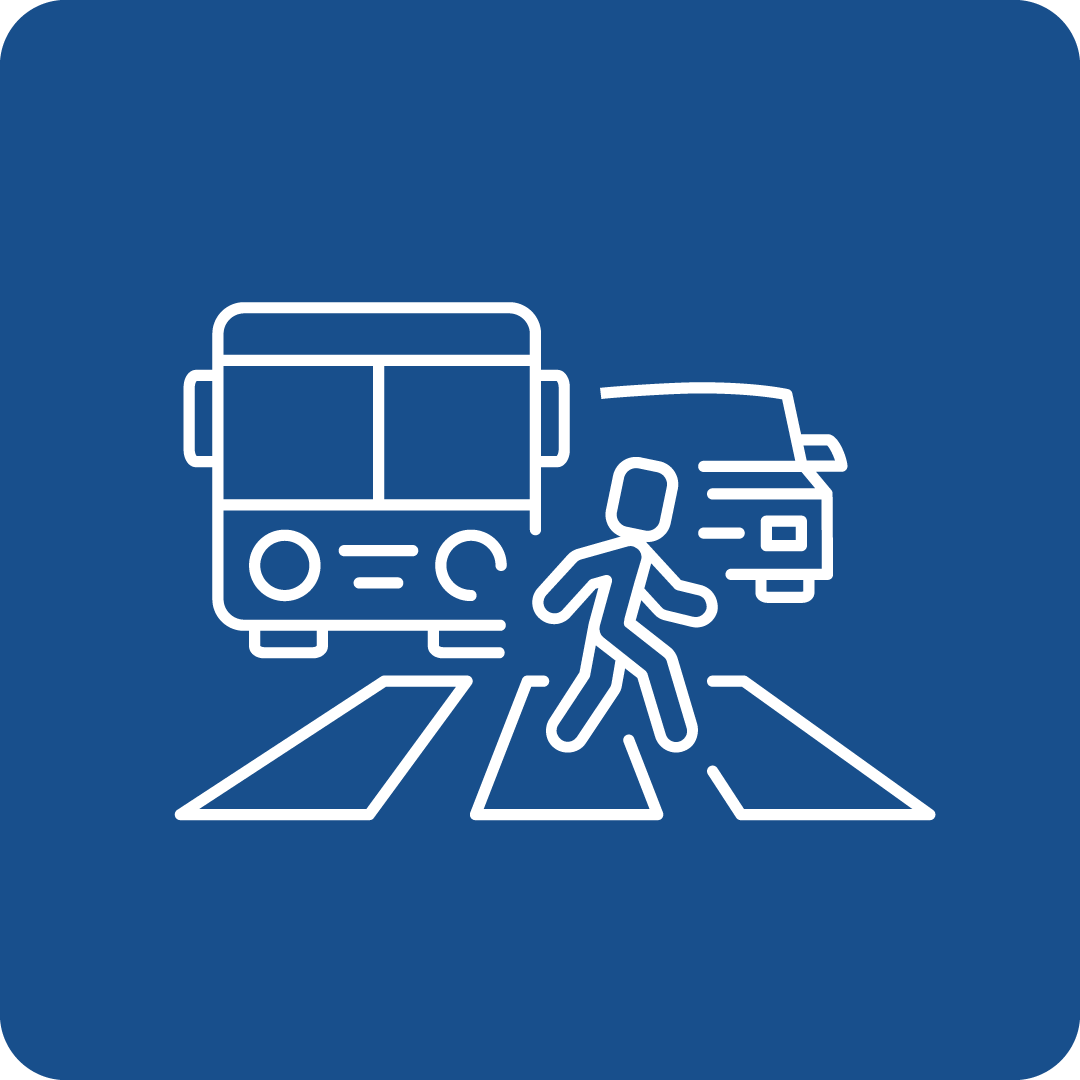Filter Search for grants
Call Navigation
Deadline expired
The deadline for this call has expired.
Call key data
First Call Interreg HR-RS 2021-2027
Funding Program
Interreg Croatia-Serbia
deadlines
Opening
05.06.2023
Deadline
04.09.2023 15:00
Funding rate
85%
Call budget
€ 17,400,751.00
Link to the call
Link to the submission
Call content
short description
The Interreg Croatia-Serbia programme aims to strengthen the social, economic and territorial development of the cross-border area through the implementation of joint projects and activities. The 1st Call targets all four Programme’s Priorities and five Specific objectives and supports standard projects and small-scale projects.
Call objectives
The following priorities and specific objectives have been developed within the programme:
- P1: Cooperating for a smarter programme area
- SO 1.1: Developing and enhancing research and innovation capacities and the uptake of advanced technologies
- P2: Cooperating for greener and climate change resilient programme area
- SO 2.1: Promoting renewable energy in accordance with Renewable Energy Directive (EU) 2018/2001, including the sustainability criteria set out therein
- SO 2.2: Promoting climate change adaptation and disaster risk prevention, resilience, taking into account ecosystem-based approaches
- P3: Cooperating for healthier and more inclusive programme area
- SO 3.1: Ensuring equal access to health care and fostering resilience of health systems, including primary care, and promoting the transition from institutional to family-based and community-based care
- P4: Cooperating for more sustinable and socially innovative tourism and culture
- SO 4.1: Enhancing the role of culture and sustainable tourism in economic development, social inclusion and social innovation
read more
Expected results
The programme proposes the following (non exhaustive) types of measures:
P1: Cooperating for a smarter programme area
- SO 1.1: Developing and enhancing research and innovation capacities and the uptake of advanced technologies
- Supporting cross-border innovation and technology based on smart specialization approach and improving cooperation between research institutions, SMEs, public sector, and business support organisations
- Supporting pilot lines, early product validation, certification, advanced manufacturing capabilities including via science – business collaboration
- Strengthening and modernising business support services
- Accelerating innovation and technology transfer in order to support the roll out of innovative solutions
- Pilot actions aimed at transferring good practices on green economy trends and standards
P2: Cooperating for greener and climate change resilient programme area
- SO 2.1: Promoting renewable energy in accordance with Renewable Energy Directive (EU) 2018/2001, including the sustainability criteria set out therein
- Development of joint solutions to increase the production of additional capacity for renewable energy (e.g., solar, geothermal, biomass, etc.) including small-scale infrastructure preferring nature-based solutions
- Implementing pilot actions to test innovative and climate-neutral solutions through, e.g., taking up and exploiting R&D results for the energy efficient renovation and heating and cooling of buildings (including cultural heritage buildings)
- Improving energy demand management and fostering behavioural changes of consumers for reducing energy consumption and a resource-efficient and sustainable use of energy, supporting schemes linking various aspects of energy savings and energy efficiency, including include awareness raising activities and information regarding cooperation mechanisms and financing schemes
- Promoting the production and use of advanced biofuels (produced from non-food/energy crops, such as cellulosic biofuels, and biomass supplied from sustainable sources), prioritising the use of brownfield locations. The programme shall support alternative methods of water collection for irrigation of energy crops
- SO 2.2: Promoting climate change adaptation and disaster risk prevention, resilience, taking into account ecosystem-based approaches
- Development and introduction of joint climate change adaptation, disaster prevention and first response plans, SECAP, as well as solutions and systems for monitoring, prevention and management of potential risks (e.g. floods, wildfires, landslides, droughts, earthquakes, invasive alien species, etc.)
- Encouraging intersectoral/interstate cooperation in risk prevention and rapid response management through development and implementation of joint protocols, procedures, approaches, measures, and sectoral risk and vulnerability assessments, such as establishment of joint emergency centres, small scale infrastructure preferring nature-based solutions, response vehicles, equipment, shelters, etc.
- Strengthening of institutional and expert capacities and raising awareness to address environmental issues, climate change and disaster risks reduction
- Development of cross-border risk assessment and disaster risk strategies for cross-border hazards such as droughts, floods, landslides, fires, invasive alien species directly threatening biodiversity and eco-systems
- Increasing climate resilience of critical infrastructure and cultural/natural heritage sites through improved risk preparedness and risk management plans
P3: Cooperating for healthier and more inclusive programme area
- SO 3.1: Ensuring equal access to health care and fostering resilience of health systems, including primary care, and promoting the transition from institutional to family-based and community-based care
- Development and implementation of ICT solutions and (pilot) actions to support digitalization in health and social care
- Improving access to long-term health and social care services for vulnerable and marginalised groups, such as children (e.g., childrean deprived of parental care), elderly, persons with disabilities through investments in individual social housing, equipment, transport means, etc.
- Improving the accessibility and effectiveness of cross-border public health care services by investing in telemedicine, diagnostics, mobile clinics/infirmaries and mobile assets, including small scale infrastructure preferring nature-based solutions
- Transfer of knowledge through exchange of experience, awareness raising, lifelong learning, education and training programmes, and capacity building through online and in-situ trainings to improve skills in the field of health care and social care and enhance the delivery of primary care and family-based and community-based care services
- Developing and implementing joint activities/solutions to promote healthy lifestyles, active and healthy aging, disease prevention.
P4: Cooperating for more sustinable and socially innovative tourism and culture
- SO 4.1: Enhancing the role of culture and sustainable tourism in economic development, social inclusion and social innovation
- Developing and implementing joint (pilot) actions (including place-based solutions) to support diversification and sustainability of the tourism by investing in lesser-known destinations and diverse forms of tourism (cultural, rural, agro, active, etc.) including small-scale infrastructure preferring nature-based solutions
- Developing and implementing innovative solutions and creating smart destinations (e.g., through digitalisation and creative industries), and new services and products for specific targeted market segments such as seniors, young people or people with disabilities including small scale infrastructure preferring nature-based solutions
- Development and implementation of measures to protect, develop and promote sustainable cultural heritage and cultural services, landscape heritage, public tourism assets and tourism services including investments in physical regeneration and security of public spaces (including small-scale infrastructure preferring nature-based solutions), in the scope of their inclusion in the touristic and/or cultural circuit
- Support of social innovation and inclusion in tourism and culture - development of existing and/or new tourism and culture businesses to support job creation including up-skilling and re-skilling of vulnerable groups (e.g., upgrading digital skills)
read more
Eligibility Criteria
Regions / countries for funding
eligible entities
Education and training institution, Non-Profit Organisation (NPO) / Non-Governmental Organisation (NGO), Public Body (national, regional and local; incl. EGTCs), Research Institution incl. University
Mandatory partnership
Yes
Project Partnership
Partnership must consist of at least two (2) partners from different participating countries (Croatia and Serbia). Each partner must ensure at least 15% of co-financing. Each Partner must have a budget of at least 10% of total Operation budget. The maximum number of partners in application is five (5) for standard projects and four (4) for small-scale projects including the Lead Partner. Otherwise, the application will be rejected.
In order to be eligible for a grant, the applicant must meet all of the following criteria:
- be a non-profit-making legal person/entity established by a public or a private law for the purposes of public interest or specific purpose of meeting the needs of general interest;
- be established under the national law in the respecting participating country (Croatia and/or Serbia);
- applicants have to be registered at least 12 months prior to the deadline for the submission of applications;
- private partner (either lead partner or project partner) must have an annual income for the two last closed financial years (cumulatively) in amount at least equal to amount of grant requested (grant size of specific partner, not total project)
In order to be eligible, projects must fulfil all four (4) of the described cross-border cooperation criteria:
- Joint development
- Joint implementation
- Joint financing
- Joint staffing
other eligibility criteria
The Programme area is identical to the one from the previous programme period 2014-2020 and includes
- 4 counties in Croatia: Osijek-Baranja, Vukovar-Srijem, Brod-Posavina, Požega-Slavonia and
- 5 districts in Serbia: Northern Bačka, Western Bačka, Southern Bačka, Srem and Mačva,
which represents a total of 25,505.00 km² of territory and over 2.1 mil. inhabitants.
Additional information
Topics
Relevance for EU Macro-Region
EUSAIR - EU Strategy for the Adriatic and Ionian Region, EUSDR - EU Strategy for the Danube Region
UN Sustainable Development Goals (UN-SDGs)
![]()
![]()
![]()
![]()
project duration
12-30 months
Additional Information
Please note the different conditions for the different specific objectives covered by this call.
- SO 1.1: Developing and enhancing research and innovation capacities and the uptake of advanced technologies
- Available budget: € 3,306,142.50
- Min-Max grant: € 200,000.00- € 400,000.00
- Duration of projects: 12 - 18 months
- Type of projects: Small-scale projects
- SO 2.1: Promoting renewable energy in accordance with Renewable Energy Directive (EU) 2018/2001, including the sustainability criteria set out therein
- Available budget: € 3,132,135.40
- Min-Max grant: € 400,000.00- € 2,000,000.00
- Duration of projects: 18-30 months
- Type of projects: Standard projects
- SO 2.2: Promoting climate change adaptation and disaster risk prevention, resilience, taking into account ecosystem-based approaches
- Available budget: € 4,698,203.10
- Min-Max grant: € 400,000.00- € 2,000,000.00
- Duration of projects: 18-30 months
- Type of projects: Standard projects
- SO 3.1: Ensuring equal access to health care and fostering resilience of health systems, including primary care, and promoting the transition from institutional to family-based and community-based care
- Available budget: € 3,480,150.50
- Min-Max grant: € 400,000.00- € 1,500,000.00
- Duration of projects: 18-30 months
- Type of projects: Standard projects
- SO 4.1: Enhancing the role of culture and sustainable tourism in economic development, social inclusion and social innovation
- Available budget: € 2,784,120.00
- Min-Max grant: € 400,000.00- € 1,500,000.00
- Duration of projects: 18-30 months
- Type of projects: Standard projects
Call documents
Interreg Croatia-Serbia 2021-2027 1st call GuidelinesInterreg Croatia-Serbia 2021-2027 1st call Guidelines(1034kB)
Interreg Croatia-Serbia 2021-2027 1st call Key FactsInterreg Croatia-Serbia 2021-2027 1st call Key Facts(1236kB)
Contact
To see more information about this call, you can register for free here
or log in with an existing account.
Log in
Register now













